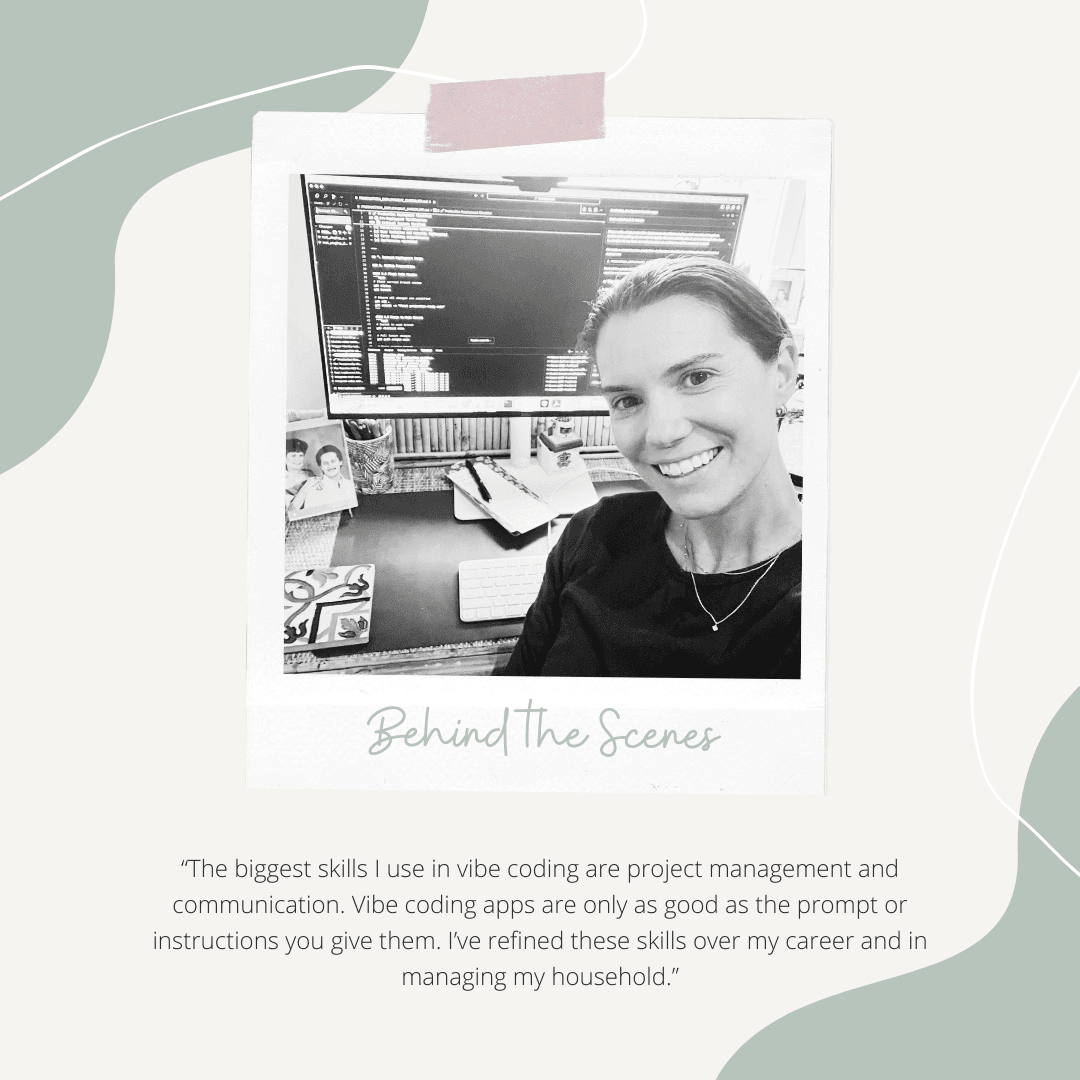No Technical Cofounder? No Problem. How Women Are Rewriting the AI Playbook
Published on October 20, 2025

Last week, I completed a major technical migration for Confidante, moving us from OpenAI’s Assistant API to the newer Responses API. For engineers, this might sound like a minor backend update. But for us, it was a milestone rooted in purpose, resilience, and our unwavering belief that technology should be more accessible and inclusive.
At Confidante we’re all about returning time, energy, and agency to mothers through emotionally intelligent AI. That means our standards for safety, tone, and emotional intelligence are sky-high. When we launched our beta, we made the intentional decision to use OpenAI’s Assistant API, knowing that it would be deprecated in under a year, giving us a short self life for our beta product. So why did we make this choice? Because it was grounded in our values and mission. This path allowed us to ship on time without compromising the quality of support we wanted to deliver to moms from day one.
And now 3-months later, when it came time to migrate, I did it myself. No CS degree. No full-time engineer. Just a fierce belief that technology should work in service of our vision, not the other way around.
Behind The Scenes: Values Based Decision Making
When we started working with a dev team earlier this year, we evaluated our backend options carefully. The team had built a standalone agent using the OpenAI API, but the quality of responses fell short of what our users needed and loved about our prototype, customGPT. The Assistant API, with its built-in orchestration, memory, and conversation logic, gave us an opportunity to launch with speed and quality from the start.
We knew it would be short-lived, and that we’d eventually need to rebuild. But that was a tradeoff we were willing to make to get meaningful support in the hands of moms so we could start learning and building WITH them.
Before writing a single line of code, we spent years deep in motherhood community spaces, coaching moms 1:1, hosting workshops, and advocating for maternal wellbeing through advocacy and nonprofit orgs. That lived experience shaped the foundation of Confidante and from day one this has been a co-creative process where our users inform our roadmap.
That’s the kind of values based decision making we practice as non-traditional founders and we believe it is our super power.
The Meaning Behind the Migration
I want to be honest, I was intimidated by this migration. For anyone who watches Great British Bakeoff, OpenAI’s migration instructions were the equivalent of Paul and Prue’s instructions during the technical challenge, “bake a Victoria sponge” - really helpful!
Rebuilding our backend, restructuring our AI infrastructure, and ensuring that our RAG (retrieval-augmented generation) system, values engine, and memory logic still worked took time, patience, and a good amount of trial and error.
I share this because I want more women and more non-technical founders to know that it is possible. That learning as you go, using natural language interfaces and low-code tools like Cursor or Claude Code, is within reach.
How did we build a functioning AI tool that helps moms identify their values, set boundaries, and navigate emotional overwhelm with no technical cofounder?
Transferable skills, deep care, and a whole lot of courage. Characteristics that we as women and moms absolutely possess.
We are so well positioned to build because we are experts at organizing, giving clear directions, problem solving, and practicing patience.
So Who Gets to Build Now?
This is about more than just our story. It’s about the broader question of access and representation in AI. Because the reality is, this industry, like much of tech, was not designed with people like us in mind.
Here’s a quick look at the current gender distribution in tech:
22% of software engineers in the U.S. are women (Zippia, 2023)
Only 22% of computer science bachelor’s degrees are earned by women (National Center for Education Statistics)
Women represent just 18% of authors at top AI conferences (Stanford AI Index, 2021)
These numbers speak volumes. They tell us that despite growing interest and capability, women remain systematically underrepresented in both foundational and frontier technologies.
And let’s be clear, the reason is not skills or ability. It's about who has mentorship. Who sees themselves reflected in the field. Who gets funding. Who has time, access, and encouragement to learn.
So when we talk about building a values-based AI company as two non-technical women, we’re not just talking about engineering. We’re talking about equity.
To the Woman With an Idea
If you're reading this and doubting whether you can build the thing on your heart, consider this your permission slip. You don’t need a CS degree. You don’t need to wait for a CTO to buy into your idea.
Start with what you know. Ask for help. Stay close to the problem you care about.
Because the future of AI doesn’t just need more engineers.
It needs more visionaries. More caregivers. More system questioners. More builders like you.
You can do this!